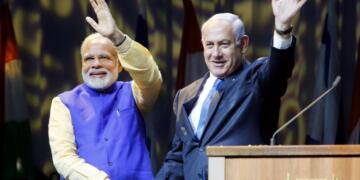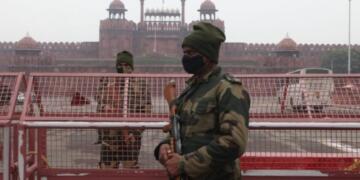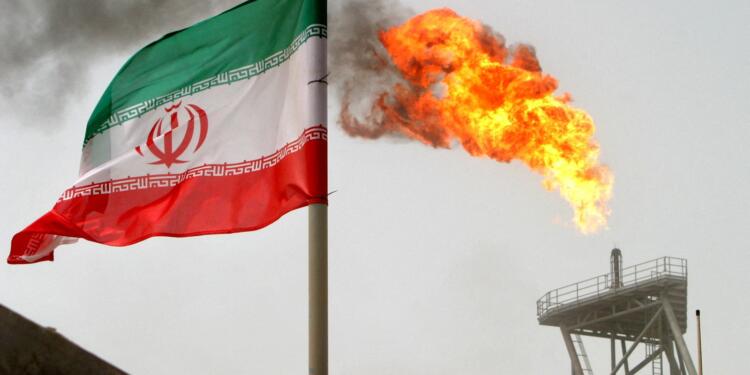The Iranian Revolution of 1979 was one of the most transformative events of the 20th century. It not only reshaped Iran’s political landscape but also triggered a wave of religious radicalism that would influence the Islamic world for decades. The revolution replaced a monarchy with a theocratic regime led by Ayatollah Khomeini, putting religion at the heart of governance.
More than 40 years later, that system is facing what could be its most serious internal challenge yet.
A Strike That Sends Shockwaves
In a bold and highly precise military strike, Israel is reported to have killed Major General Hossein Salami, the commander of Iran’s powerful Islamic Revolutionary Guard Corps (IRGC). While Iranian officials haven’t confirmed the details, large explosions were heard in Tehran on Friday, pointing to a significant and possibly targeted operation.
If Salami has indeed been killed, it would be a major blow to the regime. The IRGC isn’t just a military force—it’s the core of Iran’s power structure and reports directly to Supreme Leader Ayatollah Ali Khamenei. Taking out its top commander disrupts the entire chain of command and weakens Khamenei’s grip on power.
Why Israel Acted Now
The strike didn’t come out of nowhere. Israel has long viewed Iran’s nuclear ambitions and its support for armed groups across the region as direct threats to its security. Over the past few weeks, tensions have escalated rapidly, with Iran vowing retaliation and Israel declaring it would take any step necessary to protect itself.
Israeli Prime Minister Benjamin Netanyahu called the operation a “targeted military action” to eliminate a serious threat. Defense Minister Israel Katz described it as a “preemptive strike” and declared a national emergency to prepare for possible retaliation.
Israel’s message is clear: when its national security is on the line, it will act—quickly and without apology.
The U.S. Is Watching — Quietly
The United States, while not directly involved, appears to be standing behind Israel. Although the Biden administration hasn’t commented extensively, American intelligence and surveillance likely played a role in the strike. Washington is choosing to support Israel quietly, avoiding public confrontation while allowing its ally to take the lead.
This approach lets the U.S. back its regional partner without getting drawn into a larger war—especially important during an election year.
Iran’s Warning and Strategic Risk
Earlier this week, Iran warned it would target Israel’s undisclosed nuclear sites if attacked. The threat came after Iran claimed to have acquired sensitive intelligence about Israel’s strategic assets.
With tensions at a boiling point, the risk of a wider conflict is real. But so is the potential collapse of a deeply entrenched regime. If the IRGC’s leadership crumbles, Khamenei’s control could erode, leading to internal power struggles in Iran.
What Can India Learn?
As this high-stakes showdown unfolds, India should pay close attention. Like Israel, India faces constant security threats—from terrorism, hostile neighbors, and hybrid warfare. But unlike Israel, India’s responses are often slow, reactive, and heavily debated.
Israel shows what strong defense policy looks like:
Clear goals
Quick decision-making
Confidence in its intelligence and military forces
No hesitation when national survival is at risk
India’s surgical strikes in 2016, the Balakot airstrikes in 2019 and the more recent Operation Sindoor were important moments. But to build real deterrence, India must treat such actions not as exceptions, but as part of a long-term strategy.
Israel also demonstrates how to blend military action with diplomacy, intelligence, and public communication, keeping its citizens informed and its enemies guessing.
The Revolution’s Legacy at Risk
What started in 1979 as a revolutionary surge of Islamic power may now be coming apart. If the top brass of the IRGC is truly being dismantled, it signals a turning point. Iran’s ability to export its ideology and intimidate its rivals could soon fade.
The Middle East may be on the verge of a massive shift—not through another revolution, but through the slow collapse of the one that started it all.
And for countries like India, watching closely from the sidelines, this is more than just a regional crisis. It’s a reminder that national security requires boldness, not just balance—and that, sometimes, waiting too long can be the bigger risk.
























